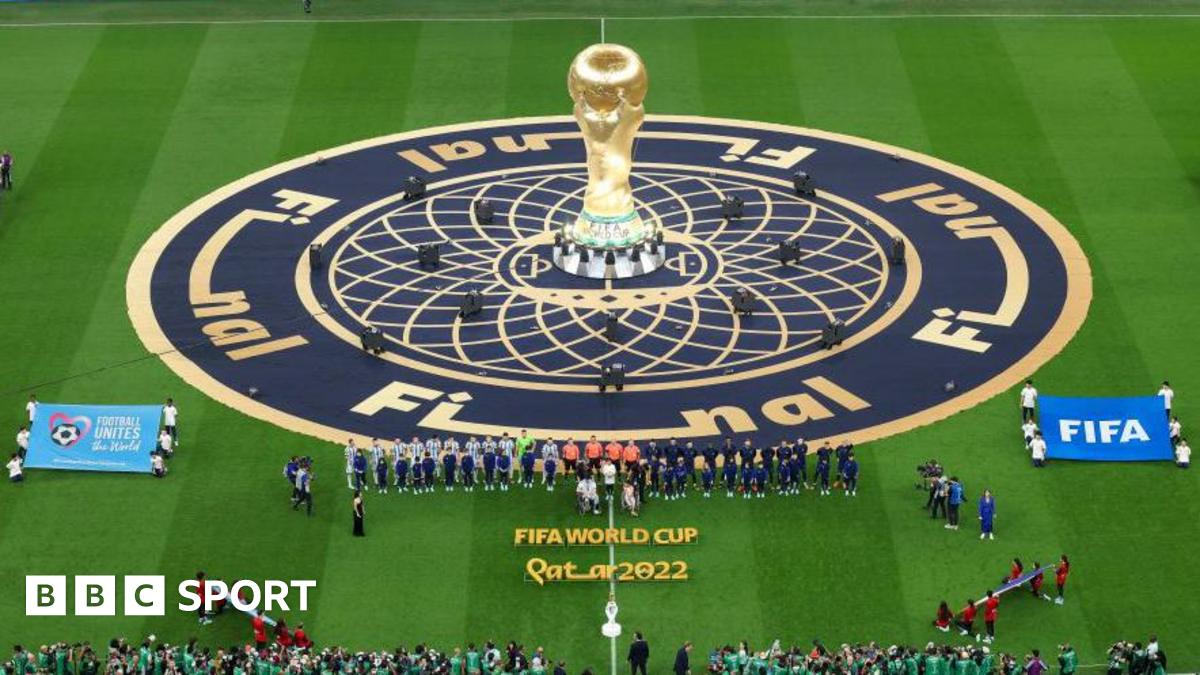The FIFA World Cup, a tournament steeped in tradition, may be on the cusp of a significant transformation. FIFA President Gianni Infantino’s recent remarks suggest a willingness to reconsider the traditional timing of the competition, opening up a debate that could reshape the future of football. This openness to change comes as the footballing world grapples with challenges like calendar congestion and player welfare.
Infantino’s call for an ‘open mind’ regarding World Cup dates signals a departure from the norm. The implications of such a shift are far-reaching, potentially affecting domestic leagues, player conditioning, and even fan engagement. This article delves into the heart of this discussion, examining the potential benefits and drawbacks of altering the World Cup schedule. We will explore the reasons behind this reconsideration, the possible alternative timeframes, and the potential impact on the global football landscape.
FIFA Considers New World Cup Dates
Gianni Infantino, the president of FIFA, has ignited a discussion about potentially altering the timing of future World Cups. Traditionally held in the northern hemisphere’s summer months (June and July), the tournament saw a notable exception in 2022 when it was moved to December in Qatar to mitigate the extreme heat. This decision, while necessary, has prompted FIFA to consider a more flexible approach to scheduling.
Infantino stated, ‘We need to consider all these elements and let’s see how we can make it better for everyone. Maybe there are ways we can optimize the calendar. We are discussing. We have to have an open mind.’ This statement underscores FIFA’s commitment to exploring all possibilities to ensure the tournament’s success and the well-being of players and fans alike.
Potential Benefits of a Schedule Change
Altering the World Cup schedule could offer several advantages. One key benefit is the potential to avoid extreme weather conditions, as seen in Qatar. By exploring alternative months like March or October, FIFA could ensure safer and more comfortable playing conditions for athletes. ‘In December you cannot play in one part of the world and in July you cannot play in another part,’ Infantino noted, highlighting the geographical challenges of the current scheduling.
Furthermore, a change in timing could alleviate calendar congestion. By strategically positioning the World Cup, FIFA could minimize clashes with domestic leagues and other major tournaments. This could lead to better player rest and recovery, ultimately improving the quality of play and reducing the risk of injuries.
Challenges and Considerations
While the prospect of a new World Cup schedule is intriguing, it is not without its challenges. The international match calendar is already fixed until 2030, presenting a significant hurdle to any immediate changes. The cooperation of various stakeholders, including national leagues, clubs, and player associations, is crucial for any proposed alterations to gain traction.
Moreover, the potential impact on fan attendance and viewership needs careful consideration. A shift to a less traditional timeframe could affect travel arrangements and viewing habits, particularly for fans in different parts of the world. FIFA must weigh these factors carefully to ensure that any changes do not negatively impact the tournament’s popularity and accessibility.
Club World Cup Expansion and Concerns
Infantino also addressed FIFA’s ambition to further expand the Club World Cup. The US hosted an expanded 32-team tournament during a major heatwave in the summer, drawing criticism from players and unions regarding player welfare. PFA chief executive Maheta Molango voiced concerns over the increasing number of games adding to an already packed calendar.
Infantino defended the expansion, stating, ‘If the first Club World Cup generated 2bn (euros) in 30 years we should generate 200bn (euros). This has created revenues for the clubs. Now we work together to see how we can make it better, bigger and more impactful in collaboration with the clubs and stakeholders because it will benefit everyone.’
The Risk of Overseas Games
Infantino cautioned against playing domestic league games overseas, describing it as a ‘big risk’ for football. His comments came in response to the approval of overseas games by UEFA, despite their opposition. Infantino emphasized the importance of maintaining the existing structure of football, with games at national, continental, and global levels. ‘If we want to break the structure we take a big risk, if we want to regulate it we have to look into it,’ he stated.
UEFA president Aleksander Ceferin echoed these concerns, warning that Europe’s top clubs risk ‘breaking’ football if league games are moved overseas. Ceferin emphasized that football is more than just entertainment, and pulling it too far from its roots could have detrimental effects.
Conclusion: A New Chapter for Football?
As FIFA contemplates a potential shift in the World Cup schedule and navigates the complexities of expanding the Club World Cup and the debate over overseas games, the future of football hangs in the balance. Gianni Infantino’s willingness to consider new approaches signals a dynamic era for the sport, one that prioritizes player welfare, optimized calendars, and global inclusivity.
The decisions made in the coming months and years will undoubtedly shape the trajectory of football for generations to come. Whether it’s a revamped World Cup schedule, an expanded Club World Cup, or a re-evaluation of overseas games, FIFA’s commitment to progress ensures that the beautiful game remains vibrant, competitive, and accessible to all.

Leave a Reply